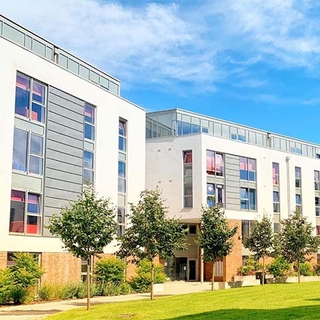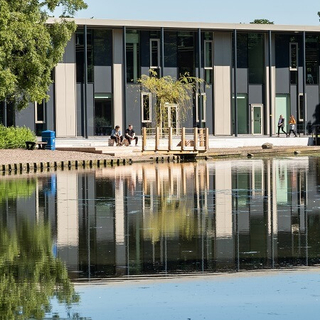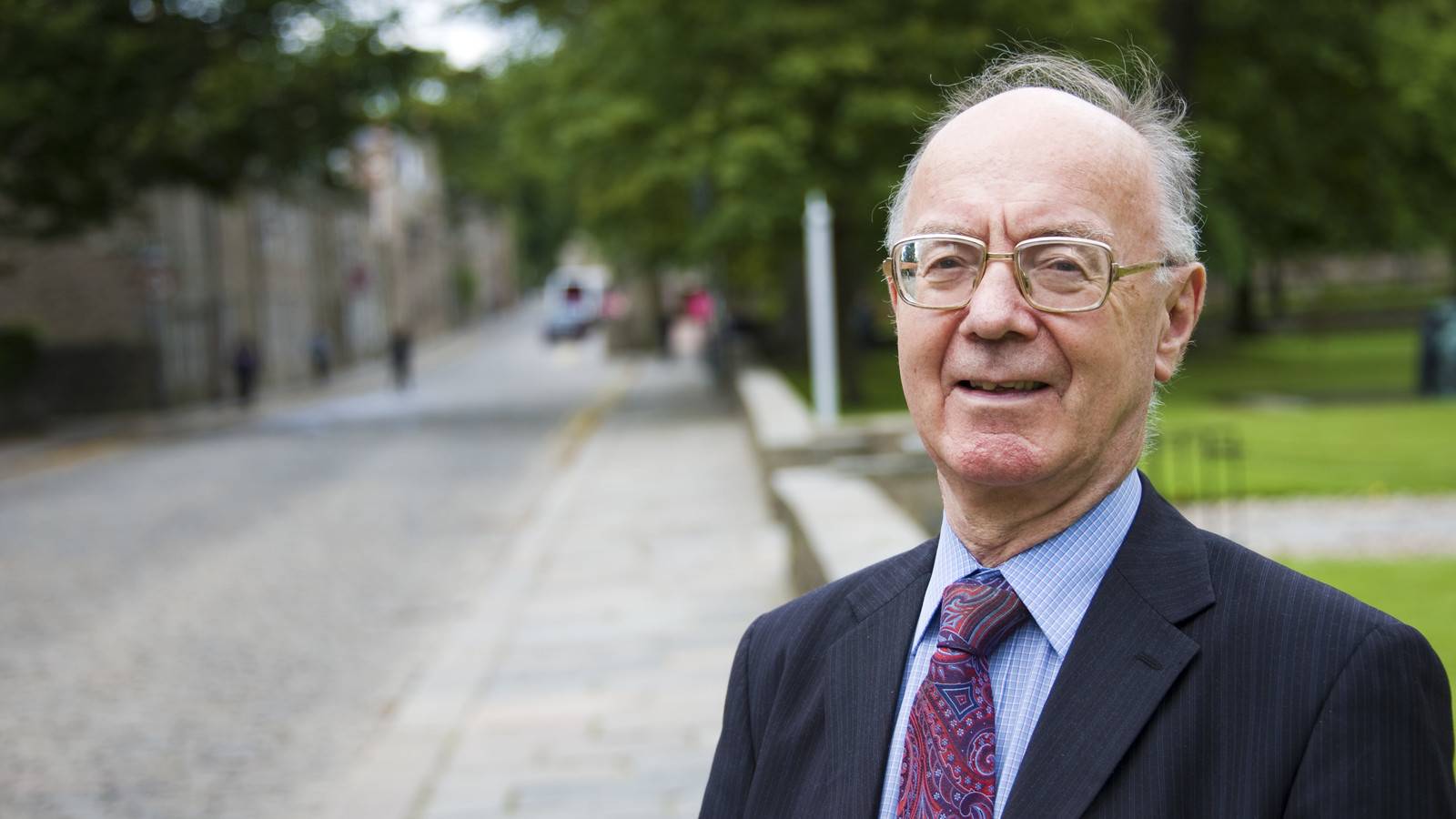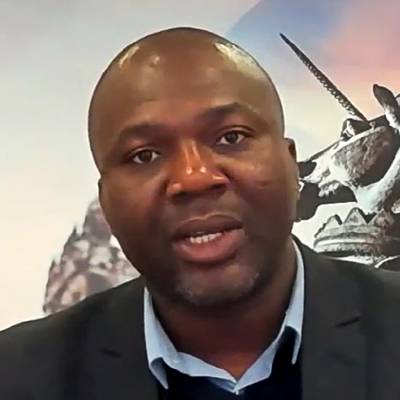Our cookies
We use cookies for three reasons: to give you the best experience on PGS, to make sure the PGS ads you see on other sites are relevant , and to measure website usage. Some of these cookies are necessary to help the site work properly and can’t be switched off. Cookies also support us to provide our services for free, and by click on “Accept” below, you are agreeing to our use of cookies .You can manage your preferences now or at any time.

Privacy overview
We use cookies, which are small text files placed on your computer, to allow the site to work for you, improve your user experience, to provide us with information about how our site is used, and to deliver personalised ads which help fund our work and deliver our service to you for free.
The information does not usually directly identify you, but it can give you a more personalised web experience.
You can accept all, or else manage cookies individually. However, blocking some types of cookies may affect your experience of the site and the services we are able to offer.
You can change your cookies preference at any time by visiting our Cookies Notice page. Please remember to clear your browsing data and cookies when you change your cookies preferences. This will remove all cookies previously placed on your browser.
For more detailed information about the cookies we use, or how to clear your browser cookies data see our Cookies Notice
Manage consent preferences
Strictly necessary cookies
These cookies are necessary for the website to function and cannot be switched off in our systems.
They are essential for you to browse the website and use its features.
You can set your browser to block or alert you about these cookies, but some parts of the site will not then work. We can’t identify you from these cookies.
Functional cookies
These help us personalise our sites for you by remembering your preferences and settings. They may be set by us or by third party providers, whose services we have added to our pages. If you do not allow these cookies, then these services may not function properly.
Performance cookies
These cookies allow us to count visits and see where our traffic comes from, so we can measure and improve the performance of our site. They help us to know which pages are popular and see how visitors move around the site. The cookies cannot directly identify any individual users.
If you do not allow these cookies we will not know when you have visited our site and will not be able to improve its performance for you.
Marketing cookies
These cookies may be set through our site by social media services or our advertising partners. Social media cookies enable you to share our content with your friends and networks. They can track your browser across other sites and build up a profile of your interests. If you do not allow these cookies you may not be able to see or use the content sharing tools.
Advertising cookies may be used to build a profile of your interests and show you relevant adverts on other sites. They do not store directly personal information, but work by uniquely identifying your browser and internet device. If you do not allow these cookies, you will still see ads, but they won’t be tailored to your interests.
Course type
Qualification, university name, phd degrees in energy economics, management and conservation.
13 degrees at 12 universities in the UK.
Customise your search
Select the start date, qualification, and how you want to study
About Postgraduate Energy Economics, Management and Conservation
Energy is one of the most fundamental requirements of society. It influences almost everything we do, from finance and industry to politics and commerce. We rely on it for the simplest tasks like boiling a kettleor turning on a lightbulb and it drives changes in global economies and world markets.
An Energy Economics, Management and Conservation PhD programme represents the apex of academic study in this field and informs many of the decisions made by international organisations and governments. To study it, you’ll need strong postgraduate credentials and a proposal for a piece of original research which you’ll perform and write about during your PhD.
There are currently 12 universities in the UK which offer this course and they offer a truly interdisciplinary academic experience which is extremely relevant to global business.
What to Expect
You can expect to study for three to six years and perform a significant amount of self-directed study, exploring topics relevant to your proposal which might include renewable energy economics, energy policy analysis and environmental sustainability. You may collaborate with your university industry partners and other organisations within the wider research community.
The main focus of the PhD is a dissertation project, which you’ll write under the supervision of your academic tutor and once graduated, you’ll be an authority in your area of the field, ready to find meaningful work in energy economics, policy analysis or sustainable energy research.

Related subjects:
- PhD Energy Economics, Management and Conservation
- PhD Conservation and Protection of Specific Environments
- PhD Environmental Analysis
- PhD Environmental Biology
- PhD Environmental Conservation and Policies
- PhD Environmental Health and Safety, Protection and Conservation
- PhD Environmental Management
- PhD Environmental Monitoring
- PhD Environmental Policy
- PhD Environmental Protection and Conservation
- PhD Environmental Science
- PhD Environmental Studies
- PhD Forensic Science
- PhD General Environmental Health
- PhD Marine and Coastal Conservation and Protection
- PhD Nature Conservation and Protection
- PhD Police Services
- PhD Pollution and Pollution Control
- PhD Renewable Energy Resources
- PhD Security, Police and the Armed Forces
- PhD Sustainability
- PhD Wildlife Conservation and Protection

- Course title (A-Z)
- Course title (Z-A)
- Price: high - low
- Price: low - high
UCL Energy Institute MPhil/PhD
Ucl (university college london).
UCL Energy Institute brings together different perspectives and procedures in energy demand and systems research, transcending boundaries Read more...
- 3 years Full time degree: £6,035 per year (UK)
- 5 years Part time degree: £2,930 per year (UK)
Renewable Materials PhD
Bangor university.
Renewable Materials with specialisations in Science of wood and plant fibres Natural fibre reinforced composites Use of plant-derived Read more...
- 3 years Full time degree: £4,712 per year (UK)
- 5 years Part time degree: £2,356 per year (UK)
Systems, Power and Energy PhD
University of glasgow.
Systems, Power and Energy research within the School of Engineering is tackling many strategic and challenging areas of research in energy, Read more...
- 6 years Part time degree: £2,356 per year (UK)
Energy MPhil, PhD
Newcastle university.
This PhD allows you to specialise in areas such as bio-energy, sustainable power and fuel cell and hydrogen technologies. By pursuing Read more...
- 36 months Full time degree: £4,712 per year (UK)
- 72 months Part time degree: £2,356 per year (UK)
Sustainable Energy Technology PhD
University of nottingham.
PhD projects in the area of sustainable energy technology explore how new and renewable technologies may be harnessed at the scale of Read more...
- 3 years Full time degree: £5,100 per year (UK)
Sustainable Energy PhD
University of surrey.
Why choose this programme Champion our ‘One Health, One Medicine’ approach which brings together expertise from a broad range of Read more...
- 4 years Full time degree: £4,712 per year (UK)
- 8 years Part time degree: £2,356 per year (UK)
Energy Efficient and Sustainable Technologies PhD
Brunel university london.
Research profile The Energy Efficient and Sustainable Technologies area is well established and has major research projects at its heart Read more...
- 6 years Part time degree: £2,355 per year (UK)
Energy Innovation, PhD
Swansea university.
Providing a sustainable, affordable and secure energy future through the discovery and implementation of new technology and innovation Read more...
PhD Sustainable Energy Technologies
University of hertfordshire.
Our research expertise in Renewable Energy Technologies specialises in areas including renewable energy, smart grids, novel wind energy Read more...
- 3 years Full time degree: £5,925 per year (UK)
- 6 years Part time degree: £2,960 per year (UK)
PhD Research Renewable Energy
University of exeter.
Research areas Our research is organised around the following research areas Offshore renewable energy Solar energy Energy Read more...
- 8 years Part time degree
PhD Fusion Energy CDT Materials
University of manchester.
Programme description The Centre for Doctoral Training in the Science and Technology of Fusion Energy, or Fusion CDT for short, is Read more...
- 48 months Full time degree: £4,786 per year (UK)
Wind and Marine Energy Systems and Structures PhD with Integrated Study
The university of edinburgh.
The Centre for Doctoral Training (CDT) in Wind and Marine Energy Systems and Structures (WAMESS) is funded by the Engineering and Physical Read more...
- 4 years Full time degree
Wind and Marine Energy Systems and Structures PhD
Course type:.
- Full time PhD
- Part time PhD
Qualification:
Related subjects:.

UCL Energy Institute MPhil/PhD
London, Bloomsbury
UCL Energy Institute delivers world-leading learning, research and policy support on the challenges of climate change and energy security. Our multidisciplinary research programme and strong industry links provide an excellent foundation for your Energy PhD study. Our graduates are employed by the world's foremost academic, industry and governmental institutions.
UK tuition fees (2024/25)
Overseas tuition fees (2024/25), programme starts, applications accepted.
Research degree students start their programme in BSEER in September or January each academic year. Starting at other times is by exception where a strong justification is made.
- Entry requirements
A minimum of an upper second-class UK Bachelor's degree and a Master's degree, or an overseas qualification of an equivalent standard, in a relevant subject, is essential. Exceptionally: where applicants have other suitable research or professional experience, they may be admitted without a Master's degree; or where applicants have a lower second-class UK Honours Bachelor's degree (2:2) (or equivalent) they must possess a relevant Master's degree to be admitted. We expect any successful application to include a sufficiently strong and convincing proposal, and those holding a Master's degree are typically well prepared to provide one. Relevant work experience is highly desirable.
The English language level for this programme is: Level 2
UCL Pre-Master's and Pre-sessional English courses are for international students who are aiming to study for a postgraduate degree at UCL. The courses will develop your academic English and academic skills required to succeed at postgraduate level.
Further information can be found on our English language requirements page.
If you are intending to apply for a time-limited visa to complete your UCL studies (e.g., Student visa, Skilled worker visa, PBS dependant visa etc.) you may be required to obtain ATAS clearance . This will be confirmed to you if you obtain an offer of a place. Please note that ATAS processing times can take up to six months, so we recommend you consider these timelines when submitting your application to UCL.
Equivalent qualifications
Country-specific information, including details of when UCL representatives are visiting your part of the world, can be obtained from the International Students website .
International applicants can find out the equivalent qualification for their country by selecting from the list below. Please note that the equivalency will correspond to the broad UK degree classification stated on this page (e.g. upper second-class). Where a specific overall percentage is required in the UK qualification, the international equivalency will be higher than that stated below. Please contact Graduate Admissions should you require further advice.
About this degree
Most energy problems are multidisciplinary in nature, spanning science, engineering and the social sciences. UCL Energy Institute brings together different perspectives in energy demand, energy supply, and energy systems research, transcending boundaries between academic disciplines to create world-leading research and policy support on the challenges of climate change, energy security, and social justice.
As an MPhil or PhD student with us, you will conduct your own original energy related research. If you have a research idea that falls within our research themes, an MPhil/PhD at UCL Energy Institute could be the right path for you. To get started with your application, follow the four step process on our ‘ How to apply for an Energy MPhil/PhD ’ page.
Who this course is for
This MPhil/PhD is for applicants with a strong interest or background in energy issues who want to do multi-disciplinary research to solve societal problems and explore innovative solutions. For example, if your energy interests are at the intersection of policy and science; engineering and economics; or the social sciences and technology, this PhD could be for you. It is suitable for both recent Master’s graduates as well as early or mid-career professionals.
What this course will give you
Studying with us is about excelling at your own field of study, being exposed to new perspectives and methodologies, and developing communication and networking skills. PhD students are core to our activities and are a key priority in terms of current and future state-of-the-art energy demand, energy supply and energy systems research here in the UK and around the world.
We are part of The Bartlett School of Environment, Energy and Resources , home to four specialist sustainability-focussed Institutes in UCL’s Bartlett Faculty of the Built Environment. Our degree programme offers students a unique opportunity to work alongside world-leading researchers across our School’s sustainability foci, giving you the opportunity to develop your research skills and opening new career opportunities in the broad field of environment, energy and resources.
We offer a world-leading research environment. In the latest national research assessment ( REF 2021 ), our Faculty were number one for Research Power in the built environment, with 91% of our Faculty’s research was deemed ‘World Leading’ and ‘Internationally Excellent’. Much of our research is undertaken in partnership with government and industry to ground it in real-world impact.
The foundation of your career
The UCL Energy Institute aims to train highly employable graduates who are equipped with the required analytical capability, research knowledge, management skills, and professional values to become leaders and entrepreneurs in their chosen field. Leadership, communication, teamwork, language and business skills are refined in the high-quality multidisciplinary research environment through our taught programmes, workshops, and internal and external seminars.
Alumni Views
“About a year before I finished, I saw that the British Energy regulator, Ofgem, was advertising for someone with the same experience and skill set I’d been developing over my Masters and then PhD… I feel very confident that my PhD played a major role in making sure I was qualified for the role and hope that it will help me progress with my career in future too.” Moira Nicolson, UCL Energy Institute PhD Graduate
Employability
A PhD indicates a highly qualified researcher, capable of independent analytic thought. It is essential for those interested in pursuing careers in academia, and it is also a highly regarded qualification for those wishing to attain senior management positions in industry, non-profit and public sector organisations, and consultancies. Our alumni have gone on to careers in academic teaching and research as well as industry and policy organisations.
Supervision and mentorship is available from world-leading researchers with national and international contacts and collaborations across government, industry, non-profit and academic sectors. These links provide real opportunities to network and collaborate with a variety of external partners. Students have the opportunity to showcase their research at national and international conferences with support from the programme. Our students also gain access to networking events, career workshops, and national and international seminars held by the UCL Energy Institute and other institutes within the school. Students also sometimes self-organise their own networking initiatives, seminars, and workshops.
Teaching and learning
Initially, you will be registered for the MPhil degree. If you wish to proceed to a PhD, you will be required to pass an 'Upgrade' assessment. The purpose of the upgrade is to assess your progress and ability to complete your PhD programme to a good standard and in a reasonable time frame.
The Doctor of Philosophy (PhD) consists of a piece of supervised research, normally undertaken over a period of three years full-time or five years part time. Assessment is by means of a thesis, which should demonstrate your capacity to pursue original research based upon a good understanding of the research techniques and concepts appropriate to the discipline.
Full-time PhD research involves full-time study. You should expect to dedicate around 35 hours per week to your work. You should meet frequently with your supervisors and engage with the departmental and UCL communities more widely through events, training, and networking opportunities.
Research areas and structure
- Energy and the Built Environment
- Energy and Economics
- Energy and Engineering
- Energy and Health
- Energy and Human Dimensions
- Energy and Policy
- Energy and Resources
- Energy and Transport
Research environment
"I very much enjoyed doing the PhD, particularly as I had great support in a truly multi-disciplinary environment, and had the freedom to design and develop my own topic. The knowledge and skills that I gained during the PhD were an important part of helping me to put theory into practice through my current position" - Peter Warren, UCL Energy Institute PhD graduate
UCL Energy Institute is helping to build a globally sustainable energy system through training future energy leaders, innovative multidisciplinary research and impactful collaborations governments and industries. We have a large PhD cohort working on a wide range of projects across energy demand, energy supply, and energy systems. Our staff and students have a passion to make the world a better place, and a commitment to creating and communicating evidence to achieve this goal.
We offer a world-leading research environment. In the latest national research assessment ( REF 2021 ), our Faculty were number one for Research Power in the built environment, with 91% of our Faculty’s research was deemed ‘World Leading’ and ‘Internationally Excellent’.
All students are initially registered for an MPhil degree. Those studying full-time for a PhD undertake a formal “upgrade process” between 9-18 months, including a presentation and viva, and if successful are registered as PhD students. Students have up to two upgrade attempts. The PhD programme normally lasts a minimum of three years. Once you have completed this period, you are able to apply for “Continuing Research Status” (CRS), with no further fees, if your studies are sufficiently advanced and you meet the CRS entry criteria. Some funders instead offer four-year scholarships with no possibility of entering Continuing Research Status. You can submit a thesis for assessment in an oral viva at the conclusion of your studies either at the end of the 3 years, the end of your funded period or during CRS.
Part-time students follow the same programme as full-time students, except that the programme length is five years, with up to two additional years in Continuing Research Status, and the first upgrade attempt normally takes place after 15 months of initial registration.
Accessibility
Details of the accessibility of UCL buildings can be obtained from AccessAble accessable.co.uk . Further information can also be obtained from the UCL Student Support and Wellbeing team .
Fees and funding
Fees for this course.
Route code RRDEERSENR01
The tuition fees shown are for the year indicated above. Fees for subsequent years may increase or otherwise vary. Where the programme is offered on a flexible/modular basis, fees are charged pro-rata to the appropriate full-time Master's fee taken in an academic session. Further information on fee status, fee increases and the fee schedule can be viewed on the UCL Students website: ucl.ac.uk/students/fees .
Additional costs
As a research student, your additional costs may include expenses such as books, conference attendance and field research, in the UK or overseas.
Our Faculty provides financial support to students through The Bartlett Student Conference Fund, Bartlett Doctoral Initiative Fund and Bartlett External Training Fund. Our School also provides the BSEER Student Development Fund where enrolled students can apply for financial support. However, please note that these funds are limited and available through competition. You can find out more on our MPhil/PhD scholarships and funding page.
For more information on additional costs for prospective students please go to our estimated cost of essential expenditure at Accommodation and living costs .
Funding your studies
The Bartlett Promise Scholarship is a long-term project from our Faculty to attract students from a broader range of backgrounds and tackle the lack of diversity in the built environment. Please see the UK PhD scholarship page for more information on eligibility eligibility criteria, selection process and FAQs. You can also find out more about on our website.
We occasionally have funded studentship opportunities. These are advertised on the UCL-wide Funded Research Opportunities page. If you would like funded studentship opportunities sent to you via email, please register your interest in studying with us.
For a comprehensive list of the funding opportunities available at UCL, including funding relevant to your nationality, please visit the Scholarships and Funding website .
Bartlett Promise PhD Scholarship
Deadline: 19 May 2024 Value: Full fees, plus £19,668 maintenance (Normal duration of programme) Criteria Based on financial need Eligibility: UK
UCL Research Opportunity Scholarship (ROS)
Deadline: 12 January 2024 Value: UK rate fees, a maintenance stipend, conference costs and professional development package (3 years) Criteria Based on both academic merit and financial need Eligibility: UK
Prospective MPhil/PhD applicants are encouraged to send an informal research enquiry before applying. This should be sent directly to the academic you would like to supervise you. Please refer to the staff list on the department website and see UCL's Institutional Research Information Service (IRIS) for staff profiles. Please attach to your e-mail a referenced research proposal of around 1,000 to 2,000 words and your curriculum vitae (CV).
Further details on how to apply to an MPhil/PhD can be found on the UCL Graduate Admissions website.
Please note that you may submit applications for a maximum of two graduate programmes (or one application for the Law LLM) in any application cycle.
Choose your programme
Please read the Application Guidance before proceeding with your application.
Year of entry: 2024-2025
Got questions get in touch.

Bartlett School of Environment, Energy and Resources
UCL is regulated by the Office for Students .
Prospective Students Graduate
- Graduate degrees
- Taught degrees
- Taught Degrees
- Applying for Graduate Taught Study at UCL
- Research degrees
- Research Degrees
- Funded Research Opportunities
- Doctoral School
- Funded Doctoral Training Programmes
- Applying for Graduate Research Study at UCL
- Teacher training
- Teacher Training
- Early Years PGCE programmes
- Primary PGCE programmes
- Secondary PGCE programmes
- Further Education PGCE programme
- How to apply
- The IOE approach
- Teacher training in the heart of London
- Why choose UCL?
- Entrepreneurship
- Inspiring facilities and resources
- Careers and employability
- Your global alumni community
- Your wellbeing
- Postgraduate Students' Association
- Your life in London
- Accommodation
- Funding your Master's
- Skip to content
- Accessibility help
MSc Energy and Economics
Skip to section, key information, contact our enquiries team.
MSc Energy and Economics is an innovative, new degree programme grounded in the cutting-edge, industry recognised, economic research carried out by Heriot-Watt University on behalf of the energy sector.
MSc Energy and Economics is an innovative, new degree programme grounded in the cutting-edge, globally recognised, economic research carried out by Heriot-Watt University on behalf of the energy sector.
This programme provides a detailed overview of current energy issues, teaching you to apply core tools of economic analysis to the conversion and use of energy resource.
You will develop a bespoke set of skills that will enable you to effectively measure and interpret the environmental and socio-economic impacts of the energy sector. You will also learn how to effectively analyse, appraise and design energy policy, systems and equipment from an economic perspective. You will gain highly-employable specialist knowledge that is crucial within the energy industry.
This Energy and Economics Master's Degree will prepare you for a dynamic career as an energy consultant, or for a graduate job in energy economics across: business, government regulation and environmental NGOs.
The dual-focused programme is ideally suited to graduates with an engineering or strong analytical background in subjects such as mechanical engineering, mathematics or economics.
It has been developed with numerous distinctive features which will aid your success in future roles:
Industry links
The Economics department at Heriot-Watt has close links to industry-leading organisations such as the World Bank and British Petroleum (BP). You will have access to a number of key industry figures such as Spencer Dale (Chief Economist at BP) who delivers guest economics lectures at Heriot-Watt.
Experts in energy economics
Economists and academics with expertise in the fields of energy, the environment and developing economies will lead your learning. They bring extensive real world experience to the programme from their work with business and global policy makers.
Each year our researchers and academics work closely with BP preparing data for their annual BP Statistical Review of World Energy. This is a highly regarded document used by energy experts, industry leaders, academics and journalists all around the world.
Flexibility
This specialist programme allows you to shape your learning to best meet the needs of your personal career-development. It is intentionally flexible. You will complete two mandatory courses and choose six further options from a suite of over 20 specialist energy and economics courses.
Topping the rankings for Economics
National Student Survey 2018: Highest level of satisfaction with teaching in Scotland
Guardian University Guide 2018: 1st in Scotland and 3rd in the UK
It is widely considered that Heriot-Watt University offers some of the best Economics degrees in Scotland and the UK.
The student experience at Heriot-Watt is no-doubt boosted by the unique setting of our campus. Immersed in the Scottish countryside, our student experience offers the best of both worlds thanks to its location just outside the UK's second largest financial hub: Edinburgh, which was recently voted the 'best city in the UK to live' for the third year running (National Newspaper Poll: The Telegraph).
Our excellent reputation for Economics is primarily the result of our dedication to fine-tuning the details of our programmes.
Our programmes are underpinned by the latest research from our three dedicated research centres for Economics. For example, much of the course content on our Energy and Economics MSc is directly informed by the research carried out by Heriot-Watt's Centre for Energy Economics Research and Policy (CEERP). This ensures that MSc Energy and Economics maintains its position as a cutting-edge, industry-focused Master's degree.
CEERP has been established in partnership between Heriot-Watt University and BP PLC to provide research support to BP and to conduct long-term research into energy economics and markets.
We are at the forefront of innovation among UK universities when it comes to the promotion and communication of energy research activities. This is thanks to our Energy Academy, a virtual learning centre used to connect all energy related research across the university. This gives our Postgraduate students direct access to the latest research carried out across Heriot-Watt University's three dedicated energy research centres which study: Energy Generation, Conversion and Storage; Intermittency of Supply, Storage and Control; and Energy Policy and Strategy.
September 2024 entry
The deadline for applications from UK students is 30 August 2024. For EU and overseas applicants, we guarantee to consider applications submitted by 2 August 2024.
Course content
Core courses:.
- Foundations of Energy
- Environmental and Energy Economics
Students will also complete a masters dissertation: an individual research project led by a research active member of economics staff on a current research theme.
Optional courses:
- Electrical Power Systems
- High Voltage
- Sustainable Processing
- Process Intensification
- Renewable Energy Technologies
- CFD and Heat Transfer
- Demand Management and Energy Storage
- Heat Transfer and Heat Exchangers
- Strategic Project Management
- Financial Analysis
- Quality Management and Engineering
- Project Management
- Systems Things and Analysis
- Emerging Financial Markets
- Energy Systems and Buildings
- Development Economics
- Ventilation and Air Conditioning
- Research Methods
- Critical Analysis and Research Project Planning
Some of our Postgraduate Taught Masters Programmes are eligible for Inter-Campus Transfer . Please contact [email protected] for further information.
Fees and funding
Tuition fees, scholarships and bursaries.
We aim to encourage well-qualified, ambitious students to study with us and we offer a wide variety of scholarships and bursaries to achieve this. Over £6 million worth of opportunities are available in fee and stipend scholarships, and more than 400 students benefit from this support.
View our full range of postgraduate scholarships .
Entry requirements
A good Honours degree (first or second class) in Mechanical Engineering, another Engineering degree, Economics, Mathematics, or a degree in another quantitative discipline.
English language requirements
If your first language is not English, or your first degree was not taught in English, we'll need to see evidence of your English language ability.
The minimum English language requirement for entry to this programme is IELTS 6.5 (or equivalent) with no component lower than 6.0.
If you do not have IELTS 6.5, we offer a range of English language courses to help you meet the English language requirement for this programme prior to commencing your studies:
- 14 weeks English (for IELTS of 5.5 with minimum of 5.0 in all skills)
- 10 weeks English (for IELTS of 5.5 with minimum of 5.5 in reading & writing and minimum of 5.0 in speaking & listening)
- 6 weeks English (for IELTS of 5.5 with minimum 5.5 in all skills)
Why Heriot-Watt?

Formula Student
Heriot-Watt Racing is the student-led team which takes part in the annual Formula Student competition.

Online events
We host online events throughout the year, giving you the opportunity to speak to our academic teaching staff, meet students, find out what it is like to study using our Virtual Learning Environment (VLE) and discover how to enrol.

Lifelong connections
Upon completing your studies you will automatically join the UK's oldest alumni association The Watt Club, with 147k members worldwide.

Flexibility and affordability
Study at a time and pace that suits you, and even while you work. HW Online offers pay-as-you-study courses and fees inclusive of exams and study materials, meaning you can focus on success, not extra costs.

Clubs and activities
At Heriot-Watt we have an extensive programme of over 90 sports clubs and societies to get involved in. You can try as many as you like or start one of your own!

Edinburgh campus accommodation
Living on our beautiful Edinburgh campus is a great way to meet others from all over the world. Our student accommodation is within easy reach of the teaching buildings, sports facilities, catering venues and the Student Union

Edinburgh Campus facilities
At Heriot-Watt University, we offer a wide range of services to help you deal with all aspects of your life with us, whether these be academic, personal, technical, financial or just plain fun!

Health and wellbeing
Student Wellbeing Services aim to provide a range of support, guidance, activities and advice to help students to be their best, and get the most from their university experience. From counselling to coaching we'll sure you are fully supported.

Heriot-Watt Student Union
There's more to university life than simply getting your degree, and Heriot-Watt University Student Union is all about helping you to have the best possible experience while you study here.

Living in Edinburgh
Historic and beautiful, a cultural capital that fuels the senses whether you love the arts or nature, nightlife or study life, Edinburgh is stimulating and inspirational and never, ever boring.

Sport facilities
Oriam, Scotland Sports Performance Centre offers state-of-the-art sports facilities, for all levels of sport and ability

Your career
Employers around the world actively seek out our graduates because they are work-ready. All our degrees are career-focused and relevant to the needs of industry. Around 95% of our students are in employment or further study within six months of graduating.
Related programmes
- Skip to main content
We use cookies
Necessary cookies.
Necessary cookies enable core functionality. The website cannot function properly without these cookies, and can only be disabled by changing your browser preferences.
Analytics cookies
Analytical cookies help us improve our website. We use Google Analytics. All data is anonymised.
Clarity helps us to understand our users’ behaviour by visually representing their clicks, taps and scrolling. All data is anonymised.
Privacy policy
- Postgraduate study
Postgraduate research opportunities A-Z
- Staff research interests search
Postgraduate research
Economics PhD

PhD programmes are offered in Economics, Finance and Quantitative Finance.
As an Economics PhD student, you will have opportunities to:
- present and discuss your work in progress with colleagues and staff members as part of the Economics workshop programme for PhD students
- take advanced MSc courses to develop your skills where appropriate
- benefit from the College of Social Sciences Graduate School Research Training programme, where appropriate
As a research student you may have the opportunity to become a Graduate Teaching Assistant, delivering tutorials to first and second year undergraduate students and help with assessment of undergraduate assignments and examinations. Teaching is payable at a University-wide hourly rate and it is anticipated that an active GTA, subject to suitability and availability, should be able to earn up to £1,500 per annum. GTAs undergo compulsory training. PhD researchers may have the opportunity to become GTAs from their second year. Vacant posts are advertised towards the end of semester 2.
Supervisors and students are required to complete an Annual Progress Report in April/May of each academic year. All Progress Reports are reviewed by the PhD Convenor and by the College's Graduate School. A satisfactory progress report is a prerequisite for student registration in the following academic session. Final assessment involves the submission of a thesis of between 70,000 and 100,000 words and an oral examination (viva voce).
Initial programme enquiries to [email protected]
Study options
The Economics PhD programmes are full-time and research-based. Our PhD normally takes 3 years (full-time) to complete, although the maximum is 4 years.
PhD programmes are offered in
- Quantitative Finance
Entry requirements
Applicants for the PhD in Economics should normally have a good Masters in the area of Economics or Finance. Applicants who are currently studying for their Masters would be expected to complete this before embarking on a PhD.
Applicants for the PhD in Quantitative Finance should normally have overall merit or above in our MSc Quantitative Finance or in a comparable Masters degree.
Required documentation
Applicants should submit:
- Transcripts/degree certificate
- Two references
- A research proposal (3000 words maximum)
- Name of potential Supervisor
English language requirements
For applicants whose first language is not English, the University sets a minimum English Language proficiency level.
International English Language Testing System (IELTS) Academic module (not General Training)
- 7.0 with no sub-test under 6.5
- Tests must have been taken within 2 years 5 months of start date. Applicants must meet the overall and subtest requirements using a single test.
Common equivalent English language qualifications
All stated English tests are acceptable for admission to this programme:
TOEFL (ibt, my best or athome)
- 94; with Reading 19; Listening 20; Speaking 20; Writing 21
- Tests must have been taken within 2 years 5 months of start date. Applicants must meet the overall and subtest requirements , this includes TOEFL mybest.
Pearsons PTE Academic
- 66 with no subtest less than: Listening 59;Reading 60; Speaking 59; Writing 74
- Tests must have been taken within 2 years 5 months of start date. Applicants must meet the overall and subtest requirements using a single test.
Cambridge Proficiency in English (CPE) and Cambridge Advanced English (CAE)
- 185 overall, no subtest less than 176
Oxford English Test
- Oxford ELLT 8
- R&L: OIDI level no less than 7 with Reading: 25-26 and Listening: 18-19
- W&S: OIDI level no less than 8.
Trinity College Tests
Integrated Skills in English II & III & IV: ISEII Pass with Pass in all sub-tests.
University of Glasgow Pre-sessional courses
Tests are accepted for 2 years following date of successful completion.
Alternatives to English Language qualification
- students must have studied for a minimum of 2 years at Undergraduate level, or 9 months at Master's level, and must have complete their degree in that majority-English speaking country and within the last 6 years
- students must have completed their final two years study in that majority-English speaking country and within the last 6 years
For international students, the Home Office has confirmed that the University can choose to use these tests to make its own assessment of English language ability for visa applications to degree level programmes. The University is also able to accept UKVI approved Secure English Language Tests (SELT) but we do not require a specific UKVI SELT for degree level programmes. We therefore still accept any of the English tests listed for admission to this programme.
Fees and funding
- UK: £4,786
- International & EU: £25,290
Prices are based on the annual fee for full-time study. Fees for part-time study are half the full-time fee.
Irish nationals who are living in the Common Travel Area of the UK, EU nationals with settled or pre-settled status, and Internationals with Indefinite Leave to remain status can also qualify for home fee status.
- Fee status and policies
Alumni discount
We offer a 20% discount to our alumni on all Postgraduate Research and full Postgraduate Taught Masters programmes. This includes University of Glasgow graduates and those who have completed Junior Year Abroad, Exchange programme or International Summer School with us. The discount is applied at registration for students who are not in receipt of another discount or scholarship funded by the University. No additional application is required.
Possible additional fees
- Re-submission by a research student £540
- Submission for a higher degree by published work £1,355
- Submission of thesis after deadline lapsed £350
- Submission by staff in receipt of staff scholarship £790
Depending on the nature of the research project, some students will be expected to pay a bench fee (also known as research support costs) to cover additional costs. The exact amount will be provided in the offer letter.
- College of Social Sciences - USyd Joint PhD Scholarship: The Socio-Economic Impacts of Colonialisation in Australia
- Economic and Social Research Council (ESRC) funding
We provides financial support for PhD students to attend international academic conferences to present their co-authored research.
eSharp is an international online journal for postgraduate research in the arts, humanities, social sciences and education. It is run entirely by graduate students and aims to provide a critical but supportive entry into the realm of academic publishing for emerging academics.
The School hosts seminars, workshops and conferences open to staff and research students.
Training opportunities
- Information technology services - core computer skills and also specialist training, such as Finding and Using Library Special Collections Material and use of quantitative data analysis software.
- Staff development service - Personal effectiveness, working with people, business skills.
- English language unit - English and study skills.
- Learning and teaching centre - compulsory training for Graduate Teaching Assistants and also a more in-depth training course, 'Approaches to Teaching, Learning and Assessment', useful for students considering an academic career.
- Researcher development - personal development planning, effective research skills, business skills.
- Research skills and professional development - a single website for research students to find out about college-based and university-wide training initiatives, resources and courses which develop their generic research and employability skills, and support their professional development.
- Careers service - one-to-one guidance interviews, careers workshops, practice job interviews with recruitment experts, networking opportunities with a variety of potential employers.
- Student employability - access to a range of resources designed to help students get the most out of their University careers and to give them the best possible head-start when they enter (or re-enter) the job market.
A PhD in Economics offers a number of different sources of training:
- Economics MSc and MRes (Level 5) courses - Economics PhD students may be able to attend relevant Economics MSc and MRes courses.
- Scottish Graduate Programme in Economics (SGPE) - as an Economics PhD student you may be able to become an affiliate of the SGPE who provide a number of training opportunities.
- Scottish Institute for Research in Economics (SIRE) - occasionally SIRE runs PhD classes which are typically advertised by the SGPE. It also runs workshops and conferences.
- In addition to the above possibilities, our economics subject area also regularly offers intensive courses or workshops in different areas of economics and finance, such as courses in Matlab, Panel Data and other topics in Microeconometrics, and topics in Finance. These are typically offered on a 2-year cycle.
Graduate School
The College of Social Sciences Graduate School draws together internationally recognised scholars and respected practitioners to offer a range of research programmes.
Our programmes are based on thorough training in research methods and we encourage you to take part in numerous exciting seminars, conferences and events. We offer modern library, IT services and a wide-range of support services. You will be living in one of Europe’s most exciting cities which has a vibrant cultural and social life.
Our Graduate School Researcher Development Programme will support you to plan your professional development over the course of your PhD and ensure your employability.
For more information get in touch with us at [email protected] .
Our PhD students
- List of our PhD students
Career prospects
Recent PhD graduates of the University of Glasgow have secured employment at universities and central banks in the UK and other countries. Examples include:
University placements in the UK
- Bournemouth
University placements outside the UK
- American University in Bulgaria
- University of Amsterdam (the Netherlands)
- University of Bari (Italy)
- Catholic University in La Paz (Bolivia)
- University of Napoli (Italy)
- Quaid-i-Azam University (Pakistan)
- Shandong University (China)
Central Banks
- Deutsche Bundesbank (Germany)
- Central Bank of Ireland
- Reserve Bank of Malawi
How to apply
Identify potential supervisors.
All Postgraduate Research Students are allocated a supervisor who will act as the main source of academic support and research mentoring. You may want to identify a potential supervisor and contact them to discuss your research proposal before you apply. Please note, even if you have spoken to an academic staff member about your proposal you still need to submit an online application form.
You can find relevant academic staff members with our staff research interests search .
Also see our Research Clusters & members:
- Applied Economics
- Microeconomics
- Macroeconomics
Gather your documents
Before applying please make sure you gather the following supporting documentation:
- Final or current degree transcripts including grades (and an official translation, if needed) – scanned copy in colour of the original document.
- Degree certificates (and an official translation, if needed): scanned copy in colour of the original document.
- Two references on headed paper and signed by the referee. One must be academic, the other can be academic or professional. References may be uploaded as part of the application form or you may enter your referees contact details on the application form. We will then email your referee and notify you when we receive the reference. We can also accept confidential references direct to [email protected] , from the referee’s university or business email account.
- Research proposal, CV, samples of written work as per requirements for each subject area.
- If you have any questions about your application before you apply: contact the Adam Smith Business School
- If you have any questions after you have submitted your application: contact our Admissions team
- Any references may be submitted by email to: [email protected]
International Students
- Advice on visa, immigrations and the Academic Technology Approval Scheme (ATAS) can be found on our International student pages

PhDs in CEPMLP
The research topics of our PhD students cover a wide range of issues relating to energy and natural resources, and often require multi-disciplinary methodologies
The PhD programme at CEPMLP
With well over 50 PhD students at any one time, we have established ourselves as the leading institution in the field for this type of high-level research.
We take a multidisciplinary approach to research and scholarship so as to prepare you for the wide-ranging challenges of the energy and natural resources industries.
We provide two supervisors for each PhD student, who could be specialists from different disciplines, and also organise fortnightly PhD seminars for you to present your research work. This means that you will be able to enhance your skills in presentation and communication, and also benefit from the comments on your research by academics and fellow students.
You will also be encouraged to present your research work at academic and professional workshops nationally or internationally, to expand the impact of your research and also to obtain insights from leading specialists in the field.
Destination of our graduates
PhD students must complete their studies within a maximum of four years.
Our PhD graduates usually join academia, energy and mining companies, law firms, consultancies, governments, and international organisations (e.g. the OPEC Secretariat, the World Bank, and the UN agencies).
Research outputs
You will be encouraged to engage with your peers and the wider academic and professional community throughout your time in Dundee.
A large number of PhD theses completed at the Centre are subsequently published as monographs and/or articles in academic and professional journals. Some PhD researchers even publish articles in peer-reviewed journals while they are still in Dundee, either alone or jointly with their supervisors, and thereby contribute to the development of a vibrant research and academic culture at the Centre.
Dr Janet Xuanli Liao is the director of the PhD programme in Social Sciences.
How to apply
To apply applicants should normally have a good taught Masters degree or equivalent in a relevant discipline from a recognised university.
Applicants should apply via our Direct Application Service
As part of their application package, candidates should supply a 5-10 page outline of their proposed research topic (general area of interest). This will enable the Director of the Programme to confirm that the proposed topic lies within the field of interest of the Centre and that adequate supervisory arrangements are in place from the outset. The main priority for the Centre is that the student is adequately supervised and is able to progress at a satisfactory rate throughout the duration of the PhD.
Sophie Harris and Vikki Watson Centre for Energy, Petroleum and Mineral Law and Policy School of Social Sciences University of Dundee Dundee DD1 4HN Tel +44 (0)1382 384459 or +44 (0)1382 386100 [email protected]
PhD Economics
The School of Economics carries out research into most of the major fields of economics. It has a distinctive focus and reputation, combining high-level advances in economic theory, structural modelling and econometrics with innovative research in public policy.
The quality of the department's research has been evident in the most recent research assessments. 97% of our Economics and Econometrics research is rated either 'world-leading' or 'internationally excellent' (REF 2021).
World-leading research
The University of Bristol is ranked fifth for research in the UK ( Times Higher Education ).
94% of our research assessed as world-leading or internationally excellent.
Entry requirements
The standard entry route into the PhD is from the MRes Economics programme, dependent on academic results and the availability of supervision. We will also consider you for direct entry into the PhD programme if you have an MRes or MPhil Economics degree from another institution. If your master's-level studies took place outside Europe, the US or Canada, you are strongly recommended to provide GRE scores in your application.
See international equivalent qualifications on the International Office website.
Read the programme admissions statement for important information on entry requirements, the application process and supporting documents required.
If English is not your first language, you will need to reach the requirements outlined in our profile level B.
Further information about English language requirements and profile levels .
Fees and funding
Fees are subject to an annual review. For programmes that last longer than one year, please budget for up to an 8% increase in fees each year.
More about tuition fees, living costs and financial support .
Alumni discount
University of Bristol students and graduates can benefit from a 25% reduction in tuition fees for postgraduate study. Check your eligibility for an alumni discount.
Funding for 2024/25
The School of Economics has an allocation of 1+3 and +3 scholarships. Please visit the school website for more information.
Further information on funding for prospective UK and international postgraduate students.
Career prospects
Many of our PhD graduates pursue careers in research, in academia or elsewhere. The programme also provides you with the skills for a career in finance, business management, public service or teaching.
Meet our supervisors
The following list shows potential supervisors for this programme. Visit their profiles for details of their research and expertise.
Research groups
Most research is carried out within five main research areas:
- econometrics;
- economic theory;
- labour economics;
- macroeconomics, growth and development;
- public organisation and applied microeconomics.
Further details of the current research and supervision interests of individual members of staff are available on the School of Economics webpage.
How to apply
Apply via our online application system. For further information, please see the guidance for how to apply on our webpages.
We welcome applications for admission at any time of year, though early application is advised.
There may be deadlines related to particular sources of funding. For further information on funding opportunities and deadlines, visit the School of Economics website.
Graduate Studies PGR Team
Faculty of Social Sciences and Law
School of Economics
Explore more
Find out about the bristol doctoral college.
Recommended pages
- Undergraduate open days
- Postgraduate open days
- Accommodation
- Information for teachers
- Maps and directions
- Sport and fitness
PhD in Economics
Applicants who wish to be considered for a department of economics scholarship need to apply before april 15th, 2023., structure of the phd programme.
In the first year of the Programme students are required to take Advanced Research Methods in Economics and strongly recommended to take Advanced Research Training in Microeconomics, Advanced Research Training in Macroeconomics and Advanced Research Training in Econometrics. Depending on their needs doctoral researchers could substitute one course (other than Advanced Research Methods in Economics) with another from the Department’s suite of MSc Programmes .
Students are required to achieve a high standard in the examinations held at the end of the first semester in order to proceed to the research phase of their PhD.
- Economics PhD details
By the end of the second semester first year PhD students will have completed, as part of the course in Advanced Research Methods, a 10,000 word research proposal that they will present at a PhD workshop. This research proposal forms the basis for supervised research over the remaining two years of the Programme and ultimately, the production of the 80,000 word PhD thesis. Full time students must finish all substantive research within three years and submit their thesis within four years (the end of the ‘writing up’ year).
View Doctoral Researcher profiles for the Department of Economics, as well as other departments within the Business School.
Supervision
As a research student your key relationship will be with your supervisors. You will be allocated a main supervisor, a second supervisor and a mentor who can give you independent advice on a range of matters. You will meet with your supervisors regularly to discuss your PhD. Your supervisory team will provide timely oral and written feedback on your research. As a PhD student you can expect to meet with your supervisors at least once every four weeks and to meet your mentor whenever required.
How to apply
You are encouraged to apply online. You will be required to supply a covering letter, your academic transcript, evidence of English Language ability (if applicable), two academic references and a short research proposal 3 to 4 pages in length. The objective of the research proposal is to ensure that suitable PhD supervisors are available to supervise you in your chosen field and also to assist the selection committee in identifying candidates who are already able to structure a Programme of research and who can demonstrate an awareness of the key research papers. The PhD proposal should be your own work and is subject to checking.
The decision process can take up to four weeks if, for example, your PhD applications is thought to be promising but a particular supervisor is for whatever reason unable to accept you as a student and an alternative has to be found. In such instances the Department will write to you and explain the delay.
It is now the policy of the Department to interview all candidates before making them an offer of a place on the PhD Programme. In most cases this will take the form of a telephone interview or an email exchange intended to clarify aspects of the student’s application or explore further the student’s research interests and discuss sources of funding. The Department wishes to make sure that Birmingham is the appropriate choice for any students to whom it makes an offer.
The Department accepts PhD applications throughout the year. However, students who apply later than the middle of August may find that there is insufficient time for the Department to evaluate the application and, if we make an offer, for the student to complete all the necessary formalities (particularly if the student is from outside the EU). Late applicants are likely to be offered admission to the PhD Programme in the following year. Note that students must commence the PhD Programme at the beginning of the first semester i.e. at the end of September. PhD students are not permitted to start their studies at any other time of the year.
PhD students are expected to participate to the fullest possible extent in the life of the Department. This means taking part in the Department’s regular internal and external seminars, as well as miscellaneous events organised by the various research groups. All students are required to attend the weekly PhD workshop. Once a year students are required to present their work to the PhD workshop and can expect to receive lively feedback from members of staff not directly involved in the student’s supervision.
PhD students are expected to stay informed about the activities of professional bodies and societies. As a PhD student you should be prepared to take advantage of relevant workshops and conferences in other Universities since these provide an excellent opportunity to network and meet leading international researchers. Generous funding is available to all PhD students to promote participation in external activities.
If appropriate for their research PhD students have the opportunity to spend part of their studies in top Chinese and Korean University as part of a formal exchange agreement, as well as to participate with the Universitas 21 network of research led universities, of which Birmingham is a member.
Entry requirements
Admission to the PhD Programme requires an MSc degree in Economics, or some closely related discipline e.g. Finance, from a respected academic institution and with an average mark of at least 65 percent. In some instances the Department will make its offer of admission to the PhD Programme conditional on an applicant’s exam results. This offer is then made firm as soon as the terms of the offer have been met.
Fees and Scholarships
PhD students in Economics pay standard fees over the course of the 3 year Programme.
Scholarships
It is likely that the Department will have at least two fully funded ESRC scholarships. These offer the payment of fees and generous maintenance grants of circa £16,500 per annum. These are available to students from both inside and outside the EU. There are moreover no restrictions on the area of research. There are however strict deadlines regarding the application process. Applications must be received by 9 December 2013. Competition for these scholarships is intense and those hoping to obtain one of these awards will need to have an outstanding academic transcript.
At the time of writing it also appears likely that the Department will be in a position to offer a number of PhD scholarships tied to research in a particular area. These also offer the payment of fees and generous maintenance grants of circa £16,500 per annum. When these have been finalised they will be posted on the website (please keep checking – we anticipate that further information will be available by the middle of November).
The Business School also offers a number of student bursaries offering the payment of fees but without maintenance. The precise deadline for applications is yet to be announced but is likely to be in March (please keep checking the website).
You must explicitly state that you wish to be considered for scholarships otherwise we will assume that you have private means of support. The Department will automatically shortlist candidates on the basis of academic merit and submit these applications to a panel for further evaluation. We will inform you if you have been successful (no further action is required on your part). If in the meantime you decide to take up the offer of another institution it is important that you inform the Department at the earliest possible opportunity, otherwise you risk depriving another student of financial support.
Finally, the University of Birmingham itself also offers a number of scholarships to PhD students through the Graduate School. Competition for these scholarships is similarly intense. To obtain further information on these scholarships applicants should visit the Graduate School website.
Teaching opportunities
The Department relies heavily on its PhD students to serve as class teachers. PhD students are permitted to teach undergraduate and taught postgraduate courses up to an average of 6 hours per week. A student teaching up to the permitted maximum can expected to defray a considerable proportion of their annual fees. PhD students are however not normally permitted to teach in the first year of the PhD Programme. Furthermore class teachers are required to undergo training and are screened for suitability as class teachers. Although the majority of PhD students serve as class teachers the availability of teaching cannot therefore be guaranteed. For this reason applicants to the PhD Programmes must not rely on class teaching in order to cover their fees or maintenance.
Visiting students
Apart from admitting its own PhD students the Department occasionally accepts visits from PhD students enrolled at other Universities. Applications which are not targeted to specific members of staff and which are not supported by existing links between members of staff between Birmingham and the host institution are however unlikely to succeed. Applications for visitor status should send a detailed research proposal to the Director of the PhD Programme. Visitors are liable to pay a bench fee whose value is linked to the duration of the visit. .
Frequently asked questions
Does the Department offer part time PhDs or part time external PhDs?
Because of the existence of the taught component the first year of the PhD Programme is open only to full time students. It may however be possible to transfer to part time status for the second and third year of the PhD Programme. There are now strict requirements about part time external PhD students. Please contact the Director of the PhD Programme for details.
How should I structure my research proposal?
The research proposal should extend to no more than 3 or 4 pages. It should pinpoint a number of closely related research questions, identify the relevant literature and provide an explanation of the manner in which the research will contribute to the stock of knowledge (a fundamental requirement for a PhD). The research proposal should further explain what techniques and / or data you anticipate using and also provide a plan for completion within three years. The PhD proposal should be your own work and is subject to checking. It might be helpful to explain in a covering letter precisely why you feel that Birmingham is a suitable place for your proposed PhD e.g. you wish to study under the supervision of a particular member of staff.
Can I change my research or am I tied to studying what I said I would in my PhD research proposal?
Unless your source of funding specifically binds you it is possible to change your research topic at up to the end of the first semester subject to approval and being able to find suitable supervisors.
Can I defer admission?
Once you have been accepted onto the PhD Programme it is normally possible to defer admission to the next academic session. This is subject to the approval of both the Director of the PhD Programme and the two supervisors. .
- Skip to content
- About Accessibility on our website

- Staff Directory
MSc Energy Economics and Finance (On-campus)
- University Home
- Business School
- Research Centres
- MSc EEF (On-campus)
The University of Aberdeen has an international reputation for teaching and research in economics and in petroleum economics in particular, with the work in this latter area led by Professor Alexander Kemp OBE.
This MSc introduced in 2008, draws on this expertise to address the need for economic and finance skills required for complex decision-making in the petroleum and energy industries. It is specifically designed for graduates who wish to embark on and further their careers in the petroleum industry and government.
Our students develop the economic and finance skills required to allow them to analyse a range of issues relevant to these industries, such as investment analysis, government petroleum policies, decommissioning, energy demand.
Study Postgraduate
Mres/phd in economics (2024 entry).

Course code
16 September 2024
2 + 4 years full-time
Qualification
University of Warwick
Applications for 2024 entry are now open and will close on 15th January 2024.
Find out more about our Economics Master of Research (MRes/PhD).
The MRes/PhD course is an integrated Master of Research in Economics, from which students progress to PhD in Economics. You will be taught and guided by top class researchers, at the forefront of their field, and will receive comprehensive support for your entry to the job market. Warwick's Department of Economics, ranked 1st in the UK ( The Good University Guide 2023 ) and 22nd the World ( The QS World University Subject Rankings 2023 ), will provide you with exceptionally high-quality training, skills and techniques in advanced economics.
* Please note that, for Visa purposes, this is considered a Taught course which means that students requiring Student Visa sponsorship will not be able to bring dependants to the UK unless they are government sponsored.
Course overview.
Our comprehensive 2+4 MRes/PhD research programme offers a unique training opportunity in advanced economics. We aim to provide you with professional training in modern economics, including tools and techniques of analysis at the forefront of the discipline, and opportunities to apply this in extended research.
We offer a two-week Mathematics and Statistics pre-sessional programme, which starts two weeks before the official start of term. The pre-sessional course will provide a thorough grounding in the mathematical techniques required throughout the programme and attendance is highly recommended, although not compulsory.
Warwick Economics was ranked 2nd in the Research Excellence Framework (REF) 2021 and 99% of our research was deemed to be world leading or internationally excellent. We have five separate seminar series running on a weekly basis (term time), with invited eminent speakers from around the world. MRes and PhD students are welcome and encouraged to attend.
Skills from this degree
You will focus on developing a range of important skills, including:
- Advanced knowledge and understanding of comparative and interdisciplinary approaches.
- Ability to identify and process data to produce original results.
- Knowledge of contemporary theoretical and empirical debates and research outcomes in your chosen specialised areas of economics.
- Sound ability to formulate hypotheses and viable explanations based on received ideas and in combination with other comparable data.
- Ability to critically evaluate existing models with a view to formulating revised or new models.
- Understanding the role of the researcher in policy making and policy analysis.
General entry requirements
Minimum requirements.
First Class undergraduate degree (or equivalent) in a related subject and/or Distinction at Master’s level. A GRE General Test quantitative section score would be useful but not essential. Scores of around 800/166 are typical for previously successful applicants.

English language requirements
You can find out more about our English language requirements Link opens in a new window . This course requires the following:
- IELTS overall score of 7.0, minimum component scores of two at 6.0/6.5 and the rest at 7.0 or above.
International qualifications
We welcome applications from students with other internationally recognised qualifications.
For more information, please visit the international entry requirements page Link opens in a new window .
Additional requirements
There are no additional entry requirements for this course.
Our research
99% of the Department's research was rated world-leading (4*) or internationally excellent (3*) in the 2021 Research Excellence Framework (REF), placing the Department second in the UK.
Areas for PhD supervision
We have active research groups in:
- Applied Economics
- Economic History
- Development Economics
- Economic Theory
- Econometrics
- Industrial Economics
- International Economics
- Labour Economics
- Macroeconomics
- Political Economy
- Public Economics
- Experimental and Behavioural Economics Modules
Core modules
Advanced Microeconomic Theory
The module aims to develop your skills and knowledge of, microeconomics necessary for a career as an academic economist and in all areas where advanced research skills in economics are required. Specifically, it aims to teach you the ability to understand, appreciate, and ultimately contribute to, frontier research. You will develop a thorough understanding of the main techniques of modern microeconomic theory; a detailed knowledge of recent research in key areas of microeconomic theory and be able to apply these to develop microeconomic models in your own research.
Advanced Macroeconomic Analysis
In this module you will focus on the development of the skills and knowledge of advanced macroeconomics, which are fundamental for a career as an academic economist. You will develop a thorough understanding of modern macroeconomic theory; and the ability to read and understand ground-breaking research in macroeconomics published in top journals. For those intending to pursue a career in macroeconomics, the course provides the basic tools required to pursue their own research agenda.
Advanced Econometric Theory
In this module you will focus on another important area of advanced research skills: advanced econometrics. You will develop an advanced understanding of the main aspects of modern econometric theory and techniques used in research at the forefront of the field.
The Practice of Economics Research
The principal aim of this module is to serve as a bridge between theoretical material taught in other year-one core modules and the practical application of theory and methods to concrete research questions, informed by other considerations (such as institutional structures). The focus is on development of the skills needed to conduct research, including identifying and formulating research questions informed by current debates both in academia and outside it (for example in public policy). You will learn to identify appropriate sources and methods, deal with the practical aspects of deploying those methods, and communicate/disseminate research results effectively.
By comparison with the other core modules taken by students in the first year of the MRes programme, this module is distinctive in its emphasis on learning by example and on learning by doing.
MRes Dissertation
This module aims to provide you with the opportunity to demonstrate your ability to autonomously investigate and carry out novel research in your chosen area of economics, at PhD level.
Optional modules
Optional modules can vary from year to year. Example optional modules may include:
- Advanced Economic Theory
- Political Economic Theory and Experiments
- Empirical Political Economy
- Advanced Econometrics
- Industrial Organisation and Data Science
You will be taught by leading academics in the major fields of Economics using a combination of lectures and classes.
You will also be heavily involved in developing your own research under the supervision of one of our leading academics in the form of your MRes dissertation.
Class sizes
Lectures and classes typically have 15-25 students in year one.
In year two class sizes vary between 3 and 15 students.
Typical contact hours
In year one you will have 9 hours of lectures per week and 4-5 hours of seminars. In year two, teaching is mainly on a seminar basis (6 hours per week).
Your timetable
Your personalised timetable will be complete when you are registered for all modules, compulsory and optional, and you have been allocated to your lectures, seminars and other small group classes. Your compulsory modules will be registered for you and you will be able to choose your optional modules when you join us.
Pre-Sessional Advanced Mathematics
You are recommended to attend the pre-sessional course in Advanced Mathematics which will be taught in the two weeks before the University’s main term begins. The course is designed to ensure that your maths knowledge and skills are at the standard required for you to succeed on the MRes/PhD course.
Assessment is a mixture of class tests, exams, presentations, and referee reports and the MRes dissertation (maximum of 20,000 words).
Progression Criteria
If you pass the MRes at a sufficiently high level of performance, you will then proceed to the PhD programme. You will have a maximum of four years to complete the PhD, but are expected to be ready to go on the job market at the beginning of your fourth year and to be ready to submit your thesis in the following spring. We aim to provide you with professional training in modern economics, including tools and techniques of analysis as well as knowledge, and an opportunity to apply this in extended research. Our objective is to produce doctoral students who are able to pursue driven careers at the highest level in academia, government agencies or consultancies.
Find a supervisor
Please do not write to members of faculty regarding supervision or entry to the PhD, as we do not recruit PhD students in this way.
All of our PhD students must either complete the MRes Economics at Warwick or demonstrate they have completed a two-year MRes at another institution (with a syllabus closely matching that taught at Warwick) and achieved excellent results.
Tuition fees
Tuition fees are payable for each year of your course at the start of the academic year, or at the start of your course, if later. Academic fees cover the cost of tuition, examinations and registration and some student amenities.
Find your research course fees
Fee Status Guidance
We carry out an initial fee status assessment based on the information you provide in your application. Students will be classified as Home or Overseas fee status. Your fee status determines tuition fees, and what financial support and scholarships may be available. If you receive an offer, your fee status will be clearly stated alongside the tuition fee information.
Do you need your fee classification to be reviewed?
If you believe that your fee status has been classified incorrectly, you can complete a fee status assessment questionnaire. Please follow the instructions in your offer information and provide the documents needed to reassess your status.
Find out more about how universities assess fee status
Additional course costs
As well as tuition fees and living expenses, some courses may require you to cover the cost of field trips or costs associated with travel abroad.
For departmental specific costs, please see the Modules tab on the course web page for the list of core and optional core modules with hyperlinks to our Module Catalogue (please visit the Department’s website if the Module Catalogue hyperlinks are not provided).
Associated costs can be found on the Study tab for each module listed in the Module Catalogue (please note most of the module content applies to 2022/23 year of study). Information about module department specific costs should be considered in conjunction with the more general costs below:
- Core text books
- Printer credits
- Dissertation binding
- Robe hire for your degree ceremony
Departmental Scholarship
The majority of students offered a place on the programme will also be offered a Departmental Scholarship consisting of a fee waiver and a maintenance award. You are not required to apply for a scholarship at the time of application for the MRes/PhD programme.
Departmental Scholarship
The majority of students offered a place on the programme will also be offered a Departmental Scholarship consisting of a fee waiver and a maintenance award. You are not required to apply for a scholarship at the time of application for the MRes/PhD programme.
Scholarships and bursaries

Scholarships and financial support
Find out about the different funding routes available, including; postgraduate loans, scholarships, fee awards and academic department bursaries.

Living costs
Find out more about the cost of living as a postgraduate student at the University of Warwick.
Your career in Economics
Most of our Economics PhD job market candidates are successful in finding academic placements at prestigious universities across the world.
The most recent cohort of students secured academic positions as Lecturers, Assistant Professors or Post-doctoral Fellows at the following Higher Education Institutions: Bocconi University in Milan, the European University Institute in Florence, University College Dublin, University of Bristol, Ashoka University in India, Stockholm University, Tilburg University and the University of Tübingen.
Some of our PhD graduates choose jobs in non-academic fields which require advanced research skills, for example, central banks, regulators, think tanks or international organisations, including:
- The Institute for Government
- Government Economic Service
- The United Nations
- The Organisation for Economic Co-operation and Development
- World Trade Organisation
- International Monetary Fund
- The World Bank Group
Economics at Warwick
We are committed to rigorous training of the next generation of economists in the tools and techniques of the discipline, producing cutting-edge research that has wide and deep impact on society and the economy, and creating strong collaborations. Our work has established Warwick Economics as one of the leading centres of economic research internationally.
We hold regular live chats for prospective students and offer holders. Please see the live chat schedule for Economics.
Visit the Economics website to find out more
Our Postgraduate courses
- Behavioural and Economic Science (Economics) (MSc)
- Economics (Diploma plus MSc)
- Economics (MSc)
- Economics and International Financial Economics (MSc)
- MRes/PhD in Economics
Academic Resources Portal
The Department of Economics have put together a portal of academic resources recommended by faculty members for anyone who may be considering studying economics at postgraduate level.
Economics Academic Resources Portal
How to apply
Please do not write to members of faculty regarding supervision or entry to the PhD.
We do not recruit PhD students in this way. All of our PhD students must either complete the MRes Economics at Warwick or demonstrate they have completed a two-year MRes at another institution (with a syllabus closely matching that taught at Warwick) and achieved excellent results. If you are interested in direct entry to the PhD, please apply for the MRes/PhD in the first instance. If you are selected for an interview, you should at this stage make clear to the admissions committee that you are seeking direct entry to the PhD.
Applications for 2024 entry will open on 1 November 2023 and will close on 15 January 2024.
How to apply for a postgraduate research course

After you’ve applied
Find out how we process your application.

Applicant Portal
Track your application and update your details.

Admissions statement
See Warwick’s postgraduate admissions policy.

Join a live chat
Ask questions and engage with Warwick.
Warwick Hosted Events Link opens in a new window
Postgraduate fairs.
Throughout the year we attend exhibitions and fairs online and in-person around the UK. These events give you the chance to explore our range of postgraduate courses, and find out what it’s like studying at Warwick. You’ll also be able to speak directly with our student recruitment team, who will be able to help answer your questions.
Join a live chat with our staff and students, who are here to answer your questions and help you learn more about postgraduate life at Warwick. You can join our general drop-in sessions or talk to your prospective department and student services.
Departmental events
Some academic departments hold events for specific postgraduate programmes, these are fantastic opportunities to learn more about Warwick and your chosen department and course.
See our online departmental events
Warwick Talk and Tours
A Warwick talk and tour lasts around two hours and consists of an overview presentation from one of our Recruitment Officers covering the key features, facilities and activities that make Warwick a leading institution. The talk is followed by a campus tour which is the perfect way to view campus, with a current student guiding you around the key areas on campus.
Connect with us
Learn more about Postgraduate study at the University of Warwick.
We may have revised the information on this page since publication. See the edits we have made and content history .
Why Warwick
Discover why Warwick's Department of Economics is one of the best in the UK and renowned globally.
1st for Economics in the Good University Guide 2024 (Published by the Times and Sunday Times September 2023) Link opens in a new window
4th for Economics in the Complete University Guide 2024 (Published by the Complete University Guide in June 2023) Link opens in a new window
22nd in the QS World Subject Rankings 2023 (For Economics and Econometrics) Link opens in a new window
About the information on this page
This information is applicable for 2024 entry. Given the interval between the publication of courses and enrolment, some of the information may change. It is important to check our website before you apply. Please read our terms and conditions to find out more.
- Home »
- University of Aberdeen »
- Business School »
- Petroleum, Energy Economics and Finance
find your perfect postgrad program Search our Database of 30,000 Courses
University of aberdeen: petroleum, energy economics and finance.
The MSc Petroleum, Energy Economics and Finance is a programme both intellectually challenging and provides the career-ready credentials that are essential to increase your appeal with employers within an energy economics context. The University of Aberdeen is an established leader in teaching and research in the fields of energy and economics. Our MSc Petroleum Energy, Economics and Finance builds on the Business School’s considerable strength in these fields. The programme incorporates significant input from the energy industry via active engagement with professional practice, multi-nationals and government agencies. With a recognised world expert in Energy Economics, Professor Alexander Kemp OBE, actively teaching on the programme.
This course attracts a highly distinctive mix of students, spanning both nationalities and disciplines. You will be encouraged to look at energy business challenges from across a range of disciplines, with an integrated perspective. In this diverse and stimulating environment, you’ll acquire skills beyond the academic and the technical. You will:
• Obtain insights into commercially-oriented analysis • Develop quantitative skills to better utilise data to inform strategic decisions. • Learn to analyse energy markets and the micro/macro impacts • Network with employers from a range of national and multi-national companies • Acquire the global perspectives essential to professional success
Our Business School is home to two very relevant and internationally recognised research centres: the Aberdeen Centre for Research in Energy Economics and Finance and the Scottish Experimental Economic Laboratory. Former students have worked with organisations such as the Scottish Government, BP and Total to create their dissertations. The course is accredited by The Energy Institute and a wide range of visiting speakers will share their insights of how the economic world of energy works.
Full-Time, 12 months started Sep 2023

The University of Aberdeen is Scotland’s third oldest university and the fifth oldest in the UK. Founded by Bishop William Elphinstone in 1495 , the beautiful campus attracts a diverse international community of over 14,000 students from over 130 countries. The University of Aberdeen is ranked as a Top 20 UK university by the Guardian University Guide 2024 and Times and Sunday Times Good University Guide 2024, and ranks among the best 200 universities in the world (Times Higher Education World University Rankings 2023). It also ranks second across Scotland, Wales and Northern Ireland for student satisfaction in The …
Not what you are looking for?
Postgraduate Bursary Opportunity with Postgrad.com
Are you studying as a PG student at the moment or have you recently been accepted on a postgraduate program? Apply now for one of our £2000 PGS bursaries.

Exclusive bursaries Open day alerts Funding advice Application tips Latest PG news
Sign up now!

Take 2 minutes to sign up to PGS student services and reap the benefits…
- The chance to apply for one of our 5 PGS Bursaries worth £2,000 each
- Fantastic scholarship updates
- Latest PG news sent directly to you.
PhD Economics Course
The University of Liverpool Management School offers you the chance to explore your own ideas through our economics PhD programme. We provide a stimulating student experience combined with thought-provoking advice from our academic staff.
Throughout your time at the Management School, you will be supported by world-class researchers who will equip you with the knowledge and skills to exceed in your career.
Economics PhD
Find out more about our Economics PhD programme as we welcome applications in areas such as development economics, game theory, macroeconomics, and more.
Additional study options
Take a look at other programmes delivered by the Management School
Back to: Economics subject group

Alternatively, use our A–Z index
Attend an open day
Discover more about postgraduate research
PhD/MPhil Petroleum Geoscience / Overview
Year of entry: 2024
- View full page
The standard academic entry requirement for this PhD is an upper second-class (2:1) honours degree in a discipline directly relevant to the PhD (or international equivalent) OR any upper-second class (2:1) honours degree and a Master’s degree at merit in a discipline directly relevant to the PhD (or international equivalent).
Other combinations of qualifications and research or work experience may also be considered. Please contact the admissions team to check.
Full entry requirements
Apply online
In your application you’ll need to include:
- The name of this programme
- Your research project title (i.e. the advertised project name or proposed project name) or area of research
- Your proposed supervisor’s name
- If you already have funding or you wish to be considered for any of the available funding
- A supporting statement (see 'Advice to Applicants' for what to include)
- Details of your previous university level study
- Names and contact details of your two referees.
Find out how this programme aligns to the UN Sustainable Development Goals , including learning which relates to:
Goal 7: Affordable and clean energy
Goal 13: climate action, goal 14: life below water, goal 15: life on land, programme options, programme description.
Research in the Department of Earth and Environmental Sciences covers three main research themes ; earth and planetary science, environment and society, and life on earth.
This programme focuses on fundamental studies of earth surface processes and sedimentary basins, and their application to petroleum geoscience. Many group members have industrial experience in the petroleum geoscience sector and are actively collaborating with industry on various research projects linked to understanding the structural and sedimentary evolution of sedimentary basins, 3D seismic interpretation and reservoir modelling.
Our research is focused on studies into processes controlling land- and sea-scape evolution, seismic and sequence stratigraphy, sedimentary basin tectonics, clastic and carbonate sedimentology and environmental change. We have developed novel digital outcrop studies and their application to reservoir modelling.
The group has dedicated state-of-the-art facilities for digital outcrop data collection and analysis (including terrestrial laser scanning) and for the interpretation, modelling and visualisation of 3D seismic data. We also have dedicated facilities for numerical modelling, in addition to central University HPC facilities.
The group runs several major industrial consortia including the rifts Analogues project (TRAP) and the North Africa Research Group
Visit our research projects page to browse our range of currently available projects.
The programme fee will vary depending on the cost of running the project. Fees quoted are fully inclusive and, therefore, you will not be required to pay any additional bench fees or administration costs.
All fees for entry will be subject to yearly review and incremental rises per annum are also likely over the duration of the course for Home students (fees are typically fixed for International students, for the course duration at the year of entry). For general fees information please visit the postgraduate fees page .
Always contact the Admissions team if you are unsure which fees apply to your project.
Scholarships/sponsorships
There are a range of scholarships, studentships and awards at university, faculty and department level to support both UK and overseas postgraduate researchers.
To be considered for many of our scholarships, you’ll need to be nominated by your proposed supervisor. Therefore, we’d highly recommend you discuss potential sources of funding with your supervisor first, so they can advise on your suitability and make sure you meet nomination deadlines.
For more information about our scholarships, visit our funding page or use our funding database to search for scholarships, studentships and awards you may be eligible for.

UN Sustainable Development Goals
The 17 United Nations Sustainable Development Goals (SDGs) are the world's call to action on the most pressing challenges facing humanity. At The University of Manchester, we address the SDGs through our research and particularly in partnership with our students.
Led by our innovative research, our teaching ensures that all our graduates are empowered, inspired and equipped to address the key socio-political and environmental challenges facing the world.
To illustrate how our teaching will empower you as a change maker, we've highlighted the key SDGs that our programmes address.

Ensure access to affordable, reliable, sustainable and modern energy for all

Take urgent action to combat climate change and its impacts

Conserve and sustainably use the oceans, seas and marine resources for sustainable development

Protect, restore and promote sustainable use of terrestrial ecosystems, sustainably manage forests, combat desertification, and halt and reverse land degradation and halt biodiversity loss
Contact details
Our internationally-renowned expertise across the School of Natural Sciences informs research led teaching with strong collaboration across disciplines, unlocking new and exciting fields and translating science into reality. Our multidisciplinary learning and research activities advance the boundaries of science for the wider benefit of society, inspiring students to promote positive change through educating future leaders in the true fundamentals of science. Find out more about Science and Engineering at Manchester .
Programmes in related subject areas
Use the links below to view lists of programmes in related subject areas.
- Earth and Environmental Sciences
- Environmental Sciences
- Petroleum Engineering
Regulated by the Office for Students
The University of Manchester is regulated by the Office for Students (OfS). The OfS aims to help students succeed in Higher Education by ensuring they receive excellent information and guidance, get high quality education that prepares them for the future and by protecting their interests. More information can be found at the OfS website .
You can find regulations and policies relating to student life at The University of Manchester, including our Degree Regulations and Complaints Procedure, on our regulations website .
- Degrees and awards
- Business and management
MSc • PgDip • PgCert
Energy Economics and Finance
Learn to analyse and understand world energy markets. From oil and gas to renewables, prepare for career success with our expert economists on this flexible degree you can study part-time.
Qualifications
Key info - msc.
This indicative cost is based on 180 credits of study over two years, starting in September 2024.
Key info - PgDip
This indicative cost is based on 120 credits of study over four terms, starting in September 2024.
Key info - PgCert
This indicative cost is based on 30 credits of study per term, starting in September 2024.
Learn to better analyse the complex uncertainties of the energy sector.
Join our online MSc in Energy Economics and Finance and train in the economic principles that businesses and governments use to understand world energy markets.
You’ll graduate ready to work as an economist or consultant within the energy industry, government or the third sector.
You’ll learn how economics and finance techniques are used to guide decision-making in the industry. And you’ll explore how the industry works. Studying with our expert team of economists and energy industry partners, you’ll cover:
- the drivers of energy demand and supply
- how the energy sector makes investment decisions
- how governments design and implement energy and environmental policies
- how to gather, use and analyse energy data.
No need for a career break
This flexible online degree can be studied part-time. You decide how many credits to study for each term, controlling the pace and cost of your degree term by term.
Who can study MSc Energy Economics and Finance?
This online energy economics degree is for anyone keen to understand the energy industry, how decisions are taken, and policies made.
It’s designed for energy professionals looking for a recognised path to career progression, or for anyone who wants to begin a successful career in the energy industry.
You can study this degree online with us anywhere in the world, with no need for a study visa. If you’d rather study full-time on campus, you may be interested in:
- MSc/LLM Energy Economics and Law
- MSc Petroleum, Energy Economics and Finance .
Choose the University of Aberdeen for online energy economics courses

We’re EQUIS accredited
Join a Business School that’s EFMD EQUIS accredited, placing it among a select group of globally recognised institutions.

Over 525 years of excellence
You’ll graduate from the fifth-oldest university in the English-speaking world, founded in 1495.

Earn as you learn
We fit around full-time work, so you can earn qualifications while you keep earning a salary.

Outstanding expertise
Professor Alex Kemp OBE will be teaching you on this programme.
One of the world’s best-known energy experts, Alex has been a specialist adviser to governments and energy companies, in the UK and globally, for decades.
You’ll benefit from his unique experience, insights, and analysis of international energy markets.
By the end of this degree, you’ll be able to...
- Analyse energy markets and trends.
- Evaluate the profitability of energy investments.
- Apply quantitative skills to better utilise data to inform strategic decisions.
- Employ the global perspectives essential to professional success in this sector.
- Critically assess energy policies of different countries.
- Evaluate the links between energy, climate change and environmental policy.
What you’ll study
You can choose to study for a:
- Masters (180 credits)
- Postgraduate Diploma (120 credits)
- Postgraduate Certificate (60 credits), or
- start with one of the short courses that make up this degree (15 credits).
How you’ll study
- Online learning
This distance-learning Energy Economics MSc is delivered flexibly, 100% online.
You can learn with us anywhere, with no need for a study visa, and manage your study hours to suit you.
Your teaching
Teaching is delivered through MyAberdeen, our online Virtual Learning Environment (VLE). It holds all the materials, tools and support you’ll need in your studies. Take a look around MyAberdeen .
You can access your learning materials on computer, smartphone and laptop, 24 hours a day. You’ll find a range of resources at your fingertips, including:
- live online webinars
- reading materials
- discussion boards with colleagues and tutors
- the online resources of our award-winning Sir Duncan Rice Library .
Your tutors
You’ll learn from a team of academic experts from the University of Aberdeen Business School .
Your tutors include Professor Alex Kemp, OBE. A Professor of Energy Economics, Alex is also Director of the internationally recognised Aberdeen Centre for Research in Energy Economics and Finance (ACREEF) . All your tutors are members of ACREEF, and are active in research and teaching across energy economics.
As well as interacting with leading researchers in the field, you’ll benefit from direct input from our significant range of energy industry partners.
Live online webinars
Each course that’s part of this degree features eight live webinars with academic experts in energy economics.
You’ll have direct interaction with your tutors in these webinars, giving you a more personal learning experience. The interactive webinars are central to your learning, and your participation in them counts towards your final grades.
Ahead of webinars, you’ll be asked to study some online materials, post questions to your tutor online, and undertake multiple-choice quizzes and other tasks. You may also be asked to work in small groups to prepare for some of the live sessions.
This degree is assessed entirely online via methods including:
- online quizzes
- a written online assessment at the end of each course
- your participation in live online forums and webinars (worth 5% of your final grade).
Study hours
Each 15-credit course in this degree features eight online webinars. Webinars are live and scheduled to last for around one hour.
Webinar times will be organised flexibly at the start of each course. Your course coordinator will consider everyone’s circumstances and time zones before setting up webinar times.
Study hours for online courses
To study part-time, we recommend you take a maximum of 30 credits per term. Students typically take one or two 15-credit short courses per term.
- Around 150 hours of study and assessment time to complete.
- You’ll study 10 – 15 hours per week per term.
- Around 300 hours of study and assessment time to complete.
- You’ll study 15 – 20 hours per week per term, plus more at assessment times.
This is an indicative guide to the time required for a typical student at this level to achieve the learning outcomes. This includes time for independent study, as well as teaching and assessments.
You can largely set your own study hours each week to cover the materials. MyAberdeen is available 24/7, so you can log in and study when it suits you.
Activities at fixed times
You’ll have live online webinars at fixed times, plus assessments with deadlines. But otherwise, you can access and work through your courses at your convenience.
Study experience
When you study with us, you can expect a first-class support structure so that you’re never alone in your studies.
But learning online does mean you have to motivate yourself and manage your own time.
Your most important commitment will be time – the time to work through, reflect on and understand your teaching materials.
Before you start a course that involves a high degree of independent study, we recommend looking at the time you will be able to devote to your studies each week:
- Be realistic
- Create a weekly schedule as a guide
If you have any questions about studying online, get in touch with our friendly team . We’re here to help.
Our first-class support structure will ensure that you aren’t alone in your studies. You’ll have contact with your coordinator via email, MyAberdeen and Microsoft Teams. You can use social media and discussion boards to chat with your fellow students too.
We provide a wide range of services to support you in your studies and beyond:
- Careers and Employability Service
- Disability support
- Library support
- Student Support Service – help with finances, stress, wellbeing and non-academic issues
- Student Learning Service – study support, with advice sessions available via phone or Skype
- Aberdeen University Students’ Association (AUSA) – run by students for students
- Toolkit – clever apps and free training that can make your study life easier
Wherever you are in the world, you’ll feel part of our very special Aberdeen learning community.
Use your local university libraries
We’re a member of the Access scheme run by the Society of College, National and University Libraries (SCONUL).
Access study spaces, books and journals in your area
The SCONUL Access scheme allows you, as a University of Aberdeen student, to access books and resources at university libraries across the UK and Ireland, or visit them for a quiet place to study.
You’ll be able to use study spaces, books and journals at over 150 university libraries which belong to the scheme.
Find out about the SCONUL Access scheme for libraries .
Your support team
Our friendly team are here to answer any queries you have before, during and after your studies.

Dr Yakubu Abdul-Salam
Salam is the degree coordinator. He’ll be on hand to answer questions about degree content before you start and to help you throughout your studies.

Cherie Connon
Cherie is part of the School’s postgraduate teaching support team. She’ll be there throughout your studies to answer your non-academic queries.

Get in touch
The online education team is here to answer any questions you have right now about this qualification, or about studying online.
Where this will take you
MSc Energy Economics and Finance will prepare you for career success in energy companies, consultancy, government, and environmental or regulatory departments of energy.
Your MSc qualification will be recognised by industry and educational institutions around the world.
If you’re a professional already working in the energy sector, this degree provides a strong route to career progression.
It will also prepare you for work with governments and NGOs who need high-quality graduates with an excellent understanding of the energy sector.
You’ll graduate ready to take up roles including:
- Commercial Analyst
- Energy and Business Consultant
- Market Analyst
- Oil and Gas Associates
- Project Manager
- Strategy Analyst.

Lifelong career support
Our career support doesn’t stop when you graduate.
You have access to our free careers service while you study, and beyond.
- 1:1 appointments
- Interview prep
- Job opportunities
Fees and funding
The fees quoted above are based on you starting your studies with us in the 2024/25 academic year.
We have confirmed that our fees will rise by 5% for the 2025/26 academic year. Our indicative costs include a 5% fee rise each year.
Pay as you go
This is a pay-as-you-go degree.
You do not have to pay the full tuition fee upfront.
You can spread the cost and pay as you go, term by term.
How it works
- You decide how many credits to study for each term.
- At the start of term, you pay only for the credits you’re taking that term.
- This gives you control over your costs and workload for each term of your degree.

Your personalised cost breakdown
Use the degree scheduler to plan your studies and see your cost breakdown, term by term.
Additional costs
Learning resources.
Access to all the books and resources you need are included in your tuition fee. They’ll be made available to you online and you do not have to buy your own copies.
You may wish to set aside a small budget for printing, depending on how you like to work.
Funding your studies
There are several ways you may be able to get help funding your studies:
- Employer sponsorship – we accept full and partial fee payments from sponsors
- Student loans
- Scholarships – search our funding database for scholarships
Find out more about funding options .
Student card
All our students are entitled to a University of Aberdeen student card. This gives you access to a range of student discounts around the city and online.
20% Alumni discount
You’re entitled to 20% off our postgraduate taught degrees and short courses if you have a degree from the University of Aberdeen. View Alumni discount details .
How discounts work
Discounts are applied during your application process. You can only use one discount per application.
Entry requirements
Msc, pgdip, pgcert.
The minimum entry requirements for this degree are:
- a relevant honours degree with a 2:2 or above.
You’re also welcome to apply if you have:
- other relevant qualifications, and
- professional experience with supportive references.
Short course route to online MSc Energy Economics and Finance
If you do not meet these entry requirements, or are not ready to commit to a full MSc, you may be able to use our online short courses as a route into this degree.
International students
We welcome students from all over the world.
See the minimum entry requirements above. If you do not have qualifications from the UK, check equivalent qualifications from your country .
Visa requirements
You do not need a student visa to study online with us.
English language requirements
Teaching is delivered in English.
If English is not your first language, use our English requirements checklist to see if you need to provide evidence of your English language skills when you apply.
English language tests and scores
If you do need to provide English language test scores, these are the tests and minimum scores we accept.
These are our Postgraduate Higher requirements.
IELTS Academic, IELTS UKVI Academic, and IELTS Online (not IELTS Indicator or IELTS General Training)
- 6.5 overall
- 5.5 for listening and speaking
- 6.0 for reading and writing
TOEFL iBT and TOEFL iBT Home Edition
- 17 for listening
- 21 for reading
- 20 for speaking
- 21 for writing
- TOEFL DI code is 0818
Cambridge English: B2 First, C1 Advanced, or C2 Proficiency
- 176 overall
- 162 for listening and speaking
- 169 for reading and writing
LanguageCert Academic/LanguageCert Academic SELT
- 60 for listening and speaking
- 65 for reading and writing
LanguageCert International ESOL B2 Communicator (Written and Spoken) – Online / In-centre
- Overall High Pass
- 33 for listening, reading and speaking
- 38 for writing
Oxford ELLT Digital – English Language Level Test Online
- 7.0 overall
- 5.0 for listening and speaking
PTE Academic (online test not accepted)
- 59 for listening, reading, speaking and writing
For more information about language qualifications see our English Language Requirements page .
How to apply
You apply through our online Applicant Portal . It allows you to upload relevant qualifications and documents.
Applying to the University of Aberdeen is always free.
What you need to apply for this degree
- Degree transcript
- Personal statement
- CV / Resume
Start with our step-by-step guide . It explains degree transcripts, what to write in your personal statement and how to use our Applicant Portal.
When to apply
You can apply to start in either September or January.
Apply as early as you can. This is so we have time to review your application and get a decision to you. We also want to ensure you have time to enrol before teaching starts.
September 2024 intake
For our September 2024 intake, the application deadline is 8 September 2024 .
You will need to accept your offer and provide any outstanding documents to meet the conditions of your offer by 15 September 2024.
Teaching starts on 23 September 2024 .
January 2025 intake
Teaching starts on 27 January 2025 .
Application deadlines will be announced in due course.
IT requirements
You will need access to:
A computer (PC, laptop or Mac) operating on either:
- Windows 10 or later
- macOS 10.15 (Catalina) or later.
Most teaching materials are smartphone- and tablet-friendly. But we recommend a proper laptop or desktop for completing assignments comfortably.
Reliable internet access
We recommend:
- a wired connection
- a minimum download speed of 2 Mbps so you can take part fully in live sessions.
Speakers or headphones
- We recommend a headset with built-in microphone and earphones if you’re likely to study in an environment with background noise.
- A webcam is optional, but you may like to use one for some interactive sessions.
We’ll give you access to Office365 applications. This means you can use online versions of Microsoft Word, Excel, and PowerPoint and install these programs on up to five personal devices.
If your course requires specialist software, we’ll provide you with access to this and a licence that lasts throughout your studies.
See our detailed IT requirements for more information.
- Short courses
NEW: Try our degree scheduler

Choose your courses
See all the courses that are part of this degree and choose what you want to study.

Manage your study schedule
Control the pace and cost of your degree. Decide how much you want to study each term.

Save to your wishlist
Save your schedule to your wishlist so you can view and edit anytime.
Master of Science
180 credits
£18,210
Postgraduate Diploma
120 credits
£11,990
Postgraduate Certificate
£5,920
Apply for this programme
You might also be interested in....
View our Business and management category

Earn your Masters in Finance online with an EQUIS accredited business school. Study flexibly around full-time work, with optional courses to help you prepare for CFA® Program exams.
- September or January

Project Management
Learn to lead projects to success in any industry. Gain a fully APM-accredited qualification in project management, studying part-time online.

Dispute Resolution
Enhance your non-court dispute resolution skills with this online Masters accredited by the Chartered Institute of Arbitrators.

Join the only ancient UK university offering an online MBA Global. Study flexibly and earn your MBA Global online with our EQUIS accredited business school.

Marketing Management
Join an online Masters in marketing management that’s designed to fit into your life – with flexible hours and no exams.

Human Factors and Organisational Psychology
Access flexible online human factors training. Study with psychologists, academics and industry experts, and build your human factors qualifications. 10% discount for NHS staff.
Course overlay
- +2348033414905
- [email protected]

Ph.D. Petroleum Economics
- March 17, 2016
- No Comments

Introduction
Emerald Energy Institute for Petroleum & Energy Economics, Policy and Strategic Studies, University of Port Harcourt, is an Institute for graduate education in petroleum, energy economics, management & policy. Its vision is to educate, empower and engage professionals and corporate decision makers in the petroleum and energy sectors. The Modular, flexible and intensive Ph.D is run in collaboration with Petroleum Engineering Department.
Methods of Instruction and Objectives
The curriculum is flexible and intensive. It is delivered in modules by University faculty and industry experts from Nigeria and abroad. On completion of this programme, the graduates would amongst others, have acquired skills that are relevant for careers in petroleum and energy industries; in government ministries, departments and parastatals that are responsible for managing petroleum and energy resources; and in banking/financial institutions, and energy and petroleum policy consulting units, and the academia.
Admission Requirements
Entry into the PhD programme shall be on a competitive basis. The following are the criteria for the admission of students to the programme:
• Candidate with a B.Sc. Second Class Upper (or Lower Division degree with a CGPA of 3.0 and above on a 5-point scale, in Social and Management Sciences, Engineering or Geosciences with at least three years’ experience in the oil and gas industry) is eligible to apply.
• Applicants must have completed an M.Sc. degree in appropriate majors, with a minimum CGPA of 4.0 on a 5-point scale to be eligible for admission. In addition to the above requirements, ALL candidates must also satisfy the minimum graduate school matriculation requirements of the University of Port Harcourt.
Programme Duration
The Ph.D programmme is hybrid, intensive and flexible. It would require a minimum of 12 quarters of intensive course work subsequent to MSc degree from reputable institutions with a minimum CGPA of 4.0.
Award of Degree
Ph.D Candidates shall be deemed successful in accordance to the University Senate stipulated requirements for the award of a Ph.D degree in Petroleum Economics
- EEI UNIPORT , PHD PETROLEUM ECONOMICS
Leave a Comment Cancel Reply
Your email address will not be published. Required fields are marked *
Save my name, email, and website in this browser for the next time I comment.

COMMENTS
This PhD allows you to specialise in areas such as bio-energy, sustainable power and fuel cell and hydrogen technologies. By pursuing Read more... 36 months Full time degree: £4,712 per year (UK) 72 months Part time degree: £2,356 per year (UK) Apply now Visit website Request info. Compare.
The School of Economics runs a full-time four-year MRes+PhD programme. The first year (MRes) is dedicated to core courses in Microeconomics, Macroeconomics and Econometrics. ... Petroleum and taxation: A critical evaluation with special application to the UK Continental Shelf: 2002. Dionisa Tzavara: Telecommunications regulation: 2002.
In the first semester of this one-year MSc, you will study key micro and macroeconomic modelling techniques and spend time understanding the critical aspects of financial analysis. You'll also gain an in-depth understanding of energy and petroleum economics and explore issues such as global warming and renewables in an economic context.
[email protected]. UCL is regulated by the Office for Students. UCL Energy Institute delivers world-leading learning, research and policy support on the challenges of climate change and energy security. Our multidisciplinary research programme and strong industry links provide an excellent foundation for your Energy PhD study.
MSc Energy and Economics is an innovative, new degree programme grounded in the cutting-edge, globally recognised, economic research carried out by Heriot-Watt University on behalf of the energy sector. This programme provides a detailed overview of current energy issues, teaching you to apply core tools of economic analysis to the conversion ...
Economics PhD. Economics. PhD. PhD programmes are offered in Economics, Finance and Quantitative Finance. PhD: normally 3 years full-time; 5 years part-time; Apply now.
Search Funded PhD Projects, Programmes & Scholarships in Economics, petroleum or oil or gas. Search for PhD funding, scholarships & studentships in the UK, Europe and around the world. PhDs ; ... 31 July 2024 PhD Research Project Funded PhD Project (UK Students Only) More Details . More Details .
Fully Funded PhD Scholarship in Maximising the Flexibility of Energy Consumption in Ireland (FlexECon) University of Galway J.E. Cairnes School of Business & Economics. Applications are invited from suitably qualified candidates for a full-time funded PhD scholarship for 4 years starting in September, 2024 and affiliated to the J.E. Read more.
Centre for Energy, Petroleum and Mineral Law and Policy. School of Social Sciences. University of Dundee. Dundee DD1 4HN. Tel +44 (0)1382 384459 or +44 (0)1382 386100. [email protected]. The research topics of our PhD students cover a wide range of issues relating to energy and natural resources, and often require multi ...
The Economics PhD is designed to train you to conduct research of high academic merit and make original contributions to the subject. The Department enjoys an international reputation for research of the highest quality. ... Code 2258 - £4,778 (UK) PhD Full time; Code 2259 - £2,389 (UK) PhD Part time; Code 3758 - £4,778 (UK) MPhil Full time ...
The School of Economics carries out research into most of the major fields of economics. It has a distinctive focus and reputation, combining high-level advances in economic theory, structural modelling and econometrics with innovative research in public policy. The quality of the department's research has been evident in the most recent ...
Energy and Petroleum Economics (BU5073) ... Eligible self-funded post graduate taught (PGT) students will receive the Aberdeen Global Scholarship. Explore our Global Scholarships, including eligibility details, on our dedicated page. ... We are ranked Top 10 in the UK for Law by the Times and Sunday Times Good University Guide 2024.
Economics PhD details. By the end of the second semester first year PhD students will have completed, as part of the course in Advanced Research Methods, a 10,000 word research proposal that they will present at a PhD workshop. This research proposal forms the basis for supervised research over the remaining two years of the Programme and ...
The University of Liverpool Management School's (ULMS) Economics PhD programme has a long tradition of developing economists for the next generation, with unique research skills in modelling economic issues, conducting empirical analyses, and developing economic guidance for businesses and public institutions, at both micro and macro level ...
MSc Energy Economics and Finance (On-campus) The University of Aberdeen has an international reputation for teaching and research in economics and in petroleum economics in particular, with the work in this latter area led by Professor Alexander Kemp OBE. This MSc introduced in 2008, draws on this expertise to address the need for economic and ...
The MRes/PhD course is an integrated Master of Research in Economics, from which students progress to PhD in Economics. You will be taught and guided by top class researchers, at the forefront of their field, and will receive comprehensive support for your entry to the job market. Warwick's Department of Economics, ranked 4th in the UK (The Complete University Guide 2023) and 25th the World ...
The MSc Petroleum, Energy Economics and Finance is a programme both intellectually challenging and provides the career-ready credentials that are essential to increase your appeal with employers within an energy economics context. The University of Aberdeen is an established leader in teaching and research in the fields of energy and economics.
PhD Economics Course. The University of Liverpool Management School offers you the chance to explore your own ideas through our economics PhD programme. We provide a stimulating student experience combined with thought-provoking advice from our academic staff. Throughout your time at the Management School, you will be supported by world-class ...
About. The Petroleum, Energy Economics and Finance course from University of Aberdeen is a programme both intellectually challenging and provides the career-ready credentials that are essential to increase your appeal with employers within an energy economics context. University of Aberdeen. Aberdeen , Scotland , United Kingdom. Top 1% worldwide.
Fees. For entry in the academic year beginning September 2024, the tuition fees are as follows: PhD (full-time) UK students (per annum): Band A £4,786; Band B £7,000; Band C £10,000; Band D £14,500; Band E £24,500. International, including EU, students (per annum): Band A £28,000; Band B £30,000; Band C £35,500; Band D £43,000; Band E ...
Learn to better analyse the complex uncertainties of the energy sector. Join our online MSc in Energy Economics and Finance and train in the economic principles that businesses and governments use to understand world energy markets. You'll graduate ready to work as an economist or consultant within the energy industry, government or the third ...
Introduction. Emerald Energy Institute for Petroleum & Energy Economics, Policy and Strategic Studies, University of Port Harcourt, is an Institute for graduate education in petroleum, energy economics, management & policy. Its vision is to educate, empower and engage professionals and corporate decision makers in the petroleum and energy sectors.